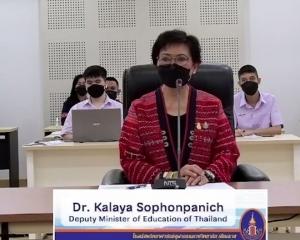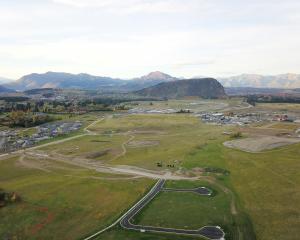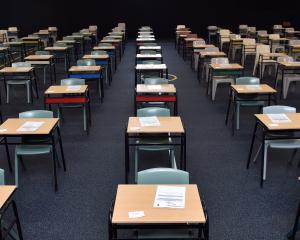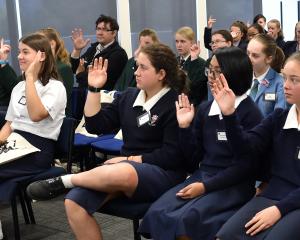Dunedin's position as a premier education centre is reinforced by plans for a Muslim boarding school in South Dunedin. The Christchurch-based Al-Noor Charitable Trust has bought the former St Patrick's Primary School site and hopes to host about 100 boys in years 11 to 13 from 2014.
The trust had intended to set up the academy in Christchurch, but the earthquakes prompted the relocation.
The school, unashamedly, will emphasise Islamic values and perspectives, including Islamic and Koran studies, and will teach Arabic. Prayers will be an integral part of the day. Initially, it is likely to be a private school, and is likely to seek government funding to lessen the burden on pupils and families, along the lines of other private schools, which receive 25% support. Later, the school could seek to become integrated, with its own special Islamic character.
While New Zealand still has many private schools, Dunedin's Kavanagh (Catholic), St Hilda's (Anglican), Columba and John McGlashan (both Presbyterian) have all integrated. That means they are, to a large degree, like any other state school. While they have to fund new buildings, they receive state support for their teacher salaries, as well as operations grants, just like their state counterparts.
The idea of a Muslim private school seems unsettling for many, perhaps because of the Western image of Islam. The radical Islamist 9/11 attacks, the hard line and intolerance of the leaders of Islamic nations such as Iran, and the reactions of some Muslims - even in Australia - to the broadcasting of a film (albeit an appalling one) on YouTube does cause concern.
The West, including New Zealand, has, or at least should have, fundamental and non-negotiable values of tolerance, freedom and free speech. There are also basic human values issues around individual rights, gender, race and sexual orientation that must be maintained. At the same time, there is scope for some "live and let live". Embedded in the ethos of tolerance and free speech has to be some acceptance of difference.
Just as the Exclusive Brethren, for example, have their particular ways, so too might certain Muslim groups. It needs to be remembered, too, that Muslims, like Christians, come in a spectrum of beliefs and outlooks. In Muslim majority nations such as Turkey and Indonesia, fruitful co-operation of people from different faiths takes place.
While no doubt in many ways conservative, the Al-Noor Trust is mainstream in the sense of being "family values" oriented. The trust's business plan for a school says "Muslim children attend state secular schools where they are subjected to pressure from the environment at school to adopt values which are contradictory to Islamic values (evolution theory, sex relations outside marriage, drinking, etc)". These views seem similar to many of those behind the Liberton Christian School, the Mosgiel Amana Christian School or the Queenstown KingsView School.
Al-Noor Trust chairman Mohammad Alayan, who has a doctorate in biochemistry and biophysics from Oregon State University, sees the pupils of the school being taught mainline subjects (as well as the Islamic components) and sitting NCEA subjects.
When that includes biology, for example, they will have to learn about evolution, even if they and the school authorities believe in a version of creationism.
It might even be possible for the school to share senior specialty classes with nearby King's High School.
The other Muslim schools in this country are the Al-Madinah School, founded in 1992, and its sister school, Zayed College for Girls (2001). Al-Madinah is mixed at primary level and is then a boys' school. It did face criticism at one stage for prioritising religion at the expense of the curriculum and segregating staff and pupils by gender. A commissioner was appointed and changes made, following Education Review Office reports about the problems. The schools have been "integrated".
The Al-Noor Trust already operates an early childhood centre in Christchurch and it has a high school for girls on its horizon. As well as New Zealand boys, it is likely to school some overseas pupils. The proposals appear a long way from the excesses of radical Islam and deserve to be given a chance. The school has the potential to be a worthwhile addition to Dunedin.











